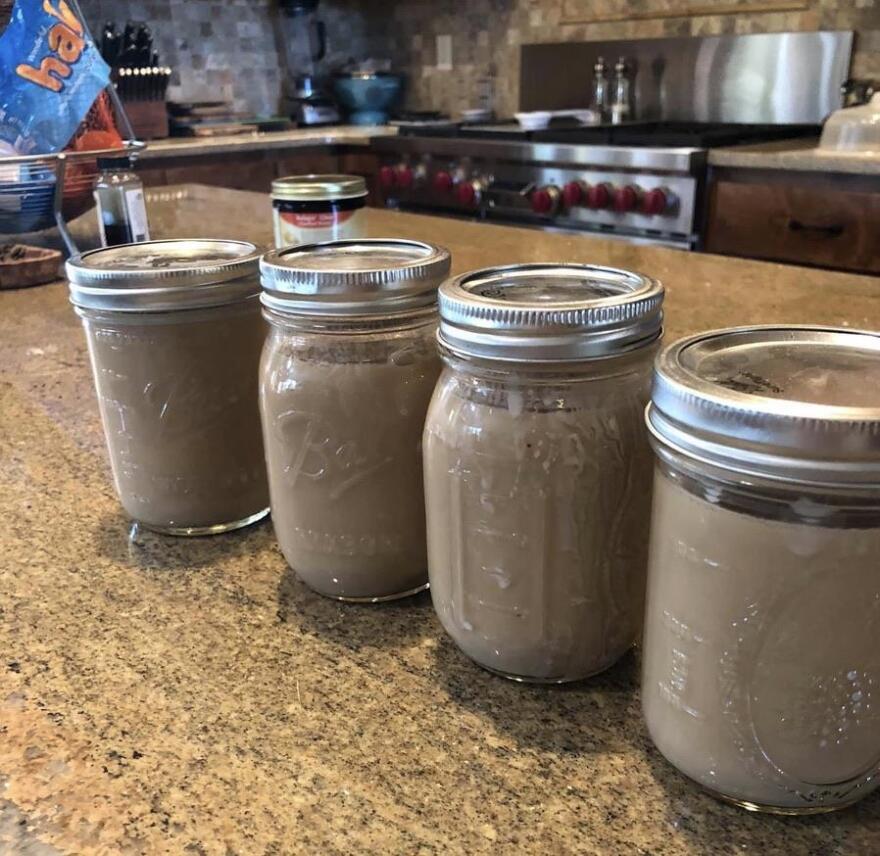The pipeline company Kinder Morgan violated the Safe Drinking Water Act when it spilled tens of thousands of gallons of drilling fluid into Blanco County groundwater, according to a new lawsuit from local landowners and groundwater conservation groups.
In late March, Teresa Albright turned on the faucet in her Blanco home and saw the water had turned a deep brown, almost like chocolate milk. She checked every other tap in her house, and the well that is the source of the water, and found the same muddy color.
Other landowners who used well water were soon reporting the same thing.
It wasn’t until a few days later that they understood the cause. About a mile from Albright’s home, a crew working on Kinder Morgan’s Permian Highway Pipeline project had accidentally spilled 36,000 gallons of drilling fluid into the earth.

The fluid, which the company says is a mixture of water and “bentonite clay,” then contaminated the wells.
At the time, Kinder Morgan said the fluid, called “AMC Gel,” was nontoxic, and that the company was working with affected landowners.
But the fluid maker warns the AMC Gel is toxic. It "is regarded as carcinogenic to humans," reads a manufacturer's safety sheet cited in the lawsuit.
“Why is Kinder Morgan telling the community this stuff is not hazardous, it’s inert, [if] the manufacturer says this is a human carcinogen?” asked Jeff Mundy, the plaintiffs’ lawyer, at a news conference on Monday.
Mundy said the Safe Drinking Water Act “prohibits the injection of contaminants into underground sources of drinking water.”
“Before this happened, [the groundwater] was some of the highest quality in the state,” he said, “indeed the United States.”
The lawsuit, filed Monday, is being brought by landowners, The Trinity Edwards Springs Protection Association and the Wimberley Valley Watershed Association. It seeks an injunction against Kinder Morgan from using the drilling fluid and asks Kinder Morgan to clean the contaminated area and pay penalties of $57,000 a day to the federal government for breaking the law.
The pipeline project has faced stiff opposition from local landowners, environmental groups and city governments, including many legal challenges.
In a written response to the lawsuit, Kinder Morgan said the project had not violated the Safe Drinking Water Act.
“Once the drilling mud was diluted to the Total Suspended Solid (TSS) levels detected in the Albright well on its cloudiest day, there was no exceedance of the Safe Drinking Water Act,” the statement reads in part.
But Albright remains unconvinced.
“I wouldn’t put this in our dog’s water bowl,” she told reporters Monday, “because I don’t know what’s in it.”
She said she has now installed a water tank on her property and has water shipped in about every 10 days.
Got a tip? Email Mose Buchele at mbuchele@kut.org. Follow him on Twitter @mosebuchele.
If you found the reporting above valuable, please consider making a donation to support it. Your gift pays for everything you find on KUT.org. Thanks for donating today.





